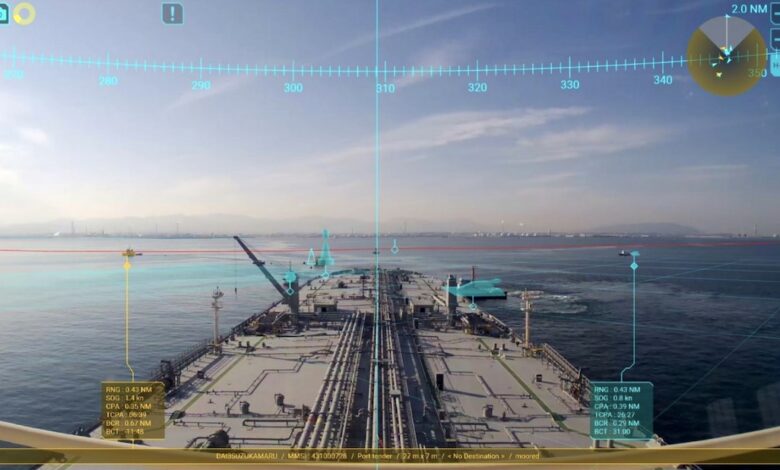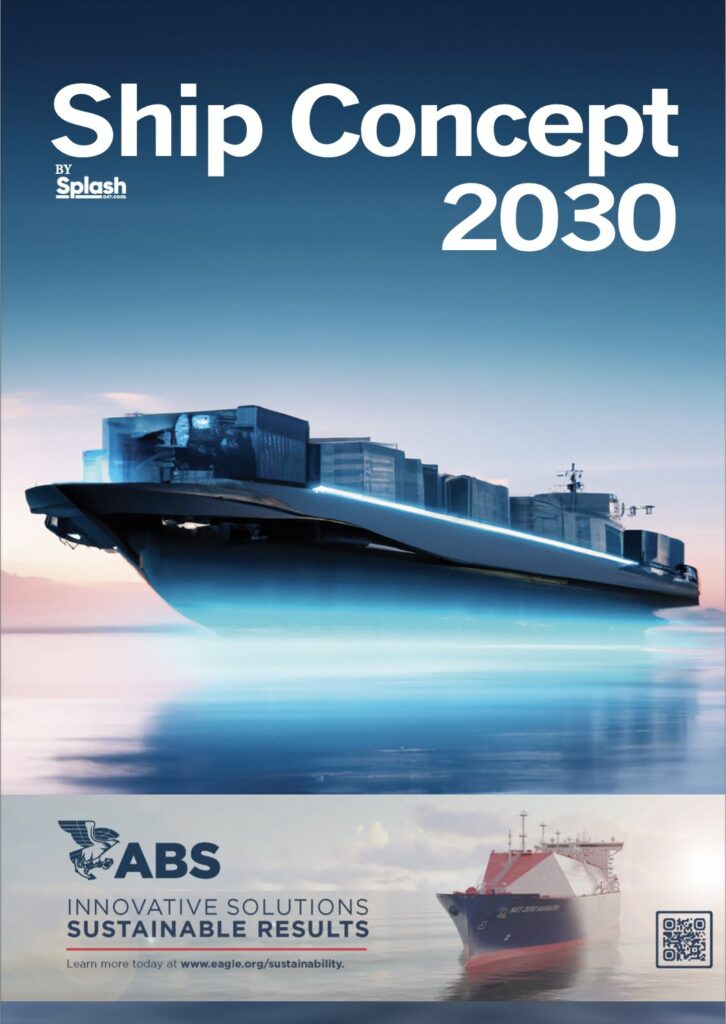Ship Concept 2030: Cutting through the noise around digitalisation

Splash moves beyond the sound bites, giving readers a realistic outlook of what to expect digitally onboard in the coming years.
Krzysztof Kozdron, managing director of technical consultancy Schulte Marine Concept, remembers the days when marine engines were equipped with mechanical governors, and when, as a teenager, he was helping his father to repair his car with a hammer and a spanner.
“It all sounds today like Stone Age reality,” Kozdron says, pointing to how quickly his industry is now automating.
Sometimes when discussing digital advances in shipping it’s hard not to conjure up images of sci-fi movies, so rapid and extreme are many depictions of automated ships of the future. Some balance is needed.
80% of decarbonisation in the next decade will come from the optimisation of current assets
“To read some of the claims being made in the shipping market it seems as though if we took all available vessel optimisation solutions and implemented them across the fleet, shipping would be a net electricity generator,” quips Anders Bruun, the CEO of software provider Coach Solutions.
Digital and decarbonisation allies
What’s undeniable is that digitalisation and decarbonisation have to live side by side for shipping to meet upcoming green targets.
According to shipmanagement giant V. Group, 80% of decarbonisation in the next decade will come from the optimisation of current assets, with said optimisation coming in no small part from the digitalisation of all operational aspects of shipping both at sea and shoreside.
Casting his eye to what ships will be like digitally come 2030, Manish Singh, who heads investment advisory AboutShips, sets the scene, telling Splash: “Artificial intelligence (AI), machine learning and greater digitalisation onboard will continue to further transform various processes and tasks, ranging from integrated bridge management, engine room management, cargo handling and optimisation, and maintenance planning.”
Valid data
Emilio Lupi, general manager, project and newbuilds at SeaTec, a technical service company belonging to V.Group, says that as ships become more complex, the data they produce will become difficult to manage, and will require a consistent investment in software engineering to allow shipowners and operators to keep their vessels fully controlled and their performances optimised.
“Despite the noise around digitalisation, gathering accurate, actionable vessel performance data continues to be a huge issue for vessel operators. It is hard enough on owned assets but on chartered tonnage, getting valid data is a difficult, time consuming process that often still relies on interpreting noon reports,” says Bruun from Coach Solutions, adding: “Without valid data you are just another person with an opinion; the key aspect is the ability to optimise on the right data.”
Without valid data you are just another person with an opinion
“Digitalisation is impacting all areas of shipmanagement and progress is rapid,” Lupi from SeaTec says. “From bringing more predictability in how we manage vessels to supporting the full life cycle of crew management, unequivocally the proliferation of digitalisation and automation is only going to continue apace.”
Automation
“Automation will grow by leaps and bounds,” says Kishore Rajvanshy, managing director of Hong Kong shipmanager Fleet Management.
The engine room, for instance, according to Rajvanshy, will see a high degree of automation with systems for monitoring and controlling engines, fuel systems, and other machinery to be largely automated and AI being used to optimise performance, predict maintenance needs, and detect and diagnose problems.
The bridge will also see advanced automation in navigation and ship control systems. This may include automated collision avoidance systems, autopilots capable of handling increasingly complex situations, and systems for monitoring and optimising ship performance.
Operational measures using digital technology such as weather predictions, trim and speed optimisation and minimising port operation time will be widely applied to reduce fuel consumption by 2030, according to Yeontae Kim, executive vice president at Korean Register. “This,” he says, “will require future ships to become much smarter.”
Warming to the theme, Kim tells Splash: “In 2030, the expansion of ship automation will continue, integrating sensors and AI-driven automation systems across various ship areas, from the engine room to the bridge. These advancements will reshape ship operations, relying extensively on these new technologies.”
As well as touching on AI and sensors, Kim highlights the growing potential to use robots and drones for repairs and inspections.
Less crew
Andrew Airey, managing director of Bangkok-based ship manager Highland Maritime, reckons that shipping’s adoption of big data is still at its infancy, fed by a huge increase in vessel data gathering sensor systems, a substantial increase in satellite communication path bandwidth and all at a much lower cost than today.
The growing automation of all ship operations could lead to one significant design change for ships, Airey suggests. He is sure ships of the future will require less crew, to the point where the accommodation blocks becomes smaller, possibly being moved towards a vessel’s bow area with more efficient smaller machinery spaces aft, and maximum cargo spaces in between.
Alfonso Castillero, CEO of the Liberian Registry, the world’s largest flag, says new ship designs will be equipped with more and more automated systems and decision support systems.
“As we approach 2030 we will see an increasing focus on newbuild vessels featuring advanced autonomous systems, however the seafarers can at all times intervene and manually take control of these systems,” Castillero tells Splash.
While many respondents agree that future ships will have less crew onboard, Patrick Ryan, chief technology officer at ABS, has a more nuanced take on the whole automation debate.
“For a long time, automation was seen as a means to reduce staff and crew. However, in the vessels of tomorrow, automation will become more aligned with safety and a component of safety procedures,” the class executive reckons.
With the ships of the future becoming more complex, Ryan says employing duel fuel engines or hybrid-electric propulsion for example, automation can potentially augment and offset training costs associated with complex systems of systems, and become an important safety feature in new fuel applications that are higher risk than seen today.
Artificial Intelligence
A new report from Lloyd’s Register shows that today’s empirical models process only about 10% of vessel data, compared with 90% for AI models, which can then generate accurate performance insights. In this way, AI-driven models can optimise decision-making, and even address safety issues that may arise due to lack of situational awareness or data.
Generative AI also has applications. SeaGPT, an AI chatbot tool to simplify communication between crew managers and port agents, automates processes such as drafting emails and extracting essential information from communications with the port agency for crew members, who highlight email overload as a concern.
“SeaGPT is expected to eventually become an executive assistant to the crew—running in the background and retrieving relevant data to handle communication that does not require direct human involvement,” experts at LR wrote in their recent guide towards shipping in 2050. For widespread AI use, however, it is important to note that interoperability issues, regulation and policy bottlenecks will need to be addressed.
This article is one of many in the recently published Ship Concept 2030 magazine, a publication designed to give readers a realistic idea of what newbuilds will look like in seven years’ time. Splash readers can read the full magazine for free by clicking here.

Ship Concept 2030 is sponsored by ABS, click here to read ABS’s 2023 Outlook.
